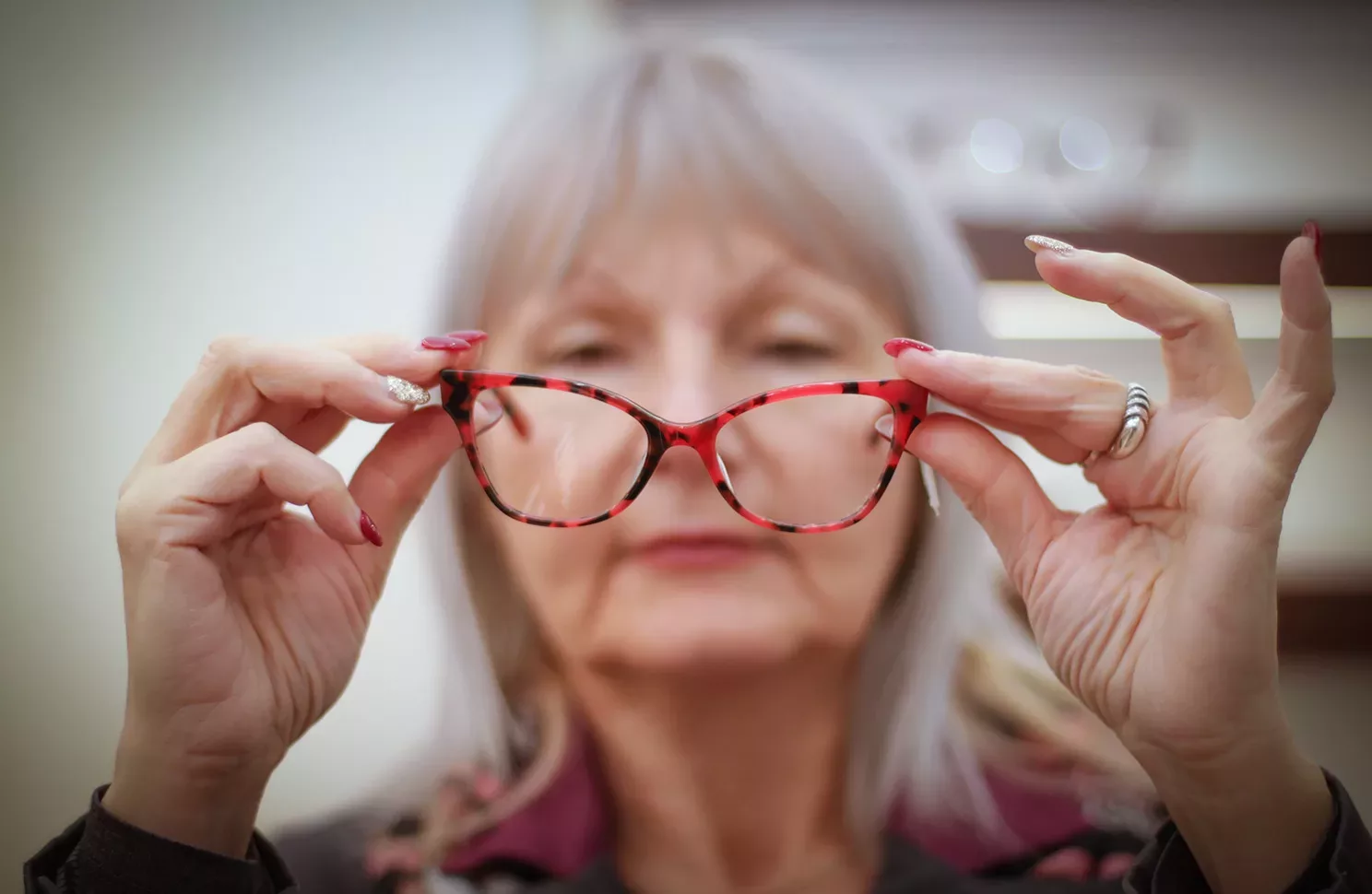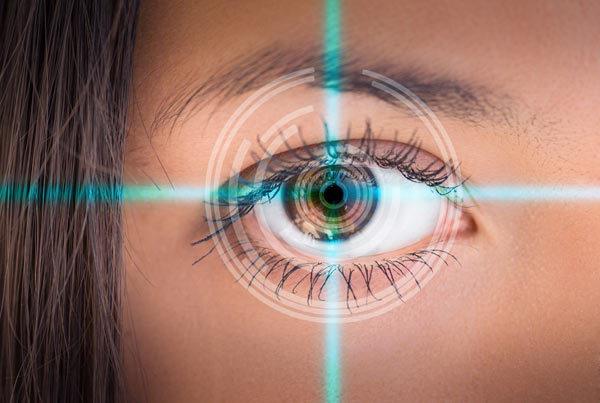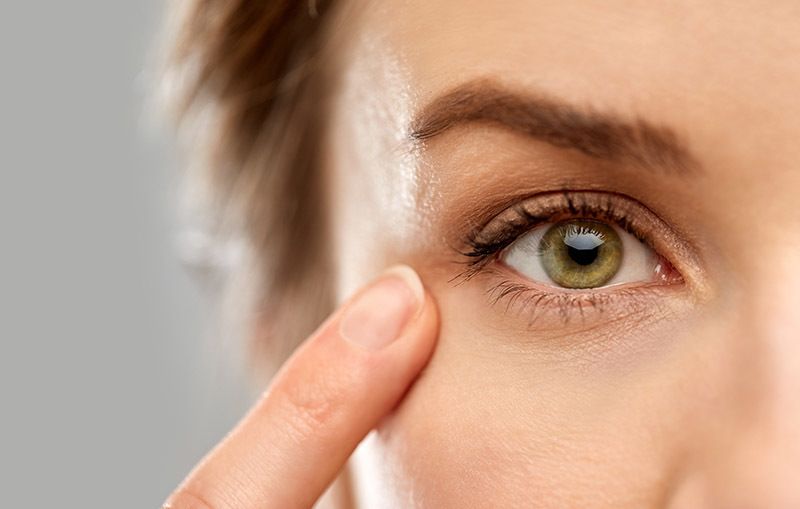
If you are considering LASIK surgery to correct your vision, you may be curious about the long-term effects. One common question many people have is, “Can LASIK wear off?” It’s a valid concern, as the idea of investing in a procedure only to have it diminish over time can be disheartening. Thankfully, the simple answer to this question is no, LASIK will never wear off, it’s a permanent vision correction treatment that over 700,000 people undergo in the United States every year. However, there are a number of age-related eye conditions that we are all susceptible to, even after vision correction surgery.
In this blog post, we’ll explain the vision issues that LASIK can permanently correct, and what to do if you experience symptoms of common age-related vision problems later on in life.
What Is LASIK Eye Surgery?

LASIK laser eye surgery is a safe, permanent, carefree solution for nearsightedness, farsightedness, and astigmatism. People who choose LASIK surgery enjoy the following benefits:
- Carefree vision correction
- Confidence boost
- Fast, Easy Recovery
- Long-term savings
- Permanent results
LASIK is a laser eye surgery that reshapes the cornea to correct the most common types of refractive errors so you can see clearly without the need for contacts or glasses. During this outpatient procedure, a computer-guided laser is used to remove small imperfections on the cornea, essentially reshaping the surface, to give you back your sharp vision for years to come.
Read “Learn Why LASIK May Be the Best Vision Correction Option for You,” to learn more.
What Vision Conditions Does LASIK Correct?

If you’re struggling to see clearly and rely on corrective eyewear like glasses or contacts, LASIK may be the permanent solution for you. LASIK eye surgery is the most performed vision correction procedure in the world and corrects all the most common refractive errors including:
Nearsightedness (Myopia)
When you are nearsighted, you have trouble seeing things clearly at a distance. Nearsightedness, also known as Myopia, is a result of your cornea curving more sharply than normal, causing your retina to focus light rays incorrectly and blurring your distant vision.
Farsightedness (Hyperopia)
Farsightedness, also known as hyperopia, makes it hard to focus on objects close-up. It happens when your cornea is insufficiently curved, preventing your retina from focusing light correctly, making things appear blurry when they are closer to you.
Astigmatism
Astigmatism causes blurry vision at near and far distances. A healthy cornea has a symmetrical curve, like a ball, and astigmatism occurs when your cornea is more egg shaped.
How Long Does LASIK Last?
LASIK surgery permanently corrects refraction errors that cause the most common vision issues. It is not possible for these errors to come back after they have been corrected during laser eye surgery. Meaning, the refraction errors your LASIK surgery fixed will stay fixed, including conditions such as nearsightedness, farsightedness, and astigmatism.
Can My Vision Change After LASIK?

As we age, our eyes can naturally develop age-related vision conditions. In fact, the Eye Diseases Prevalence Research Group estimated that over 5.5 million people in the U.S. over the age of 40 have some degree of vision impairment due to age-related eye conditions. Even if you have had perfect vision your entire life, or have previously undergone LASIK surgery, it is important to attend regular eye exams. This ensures your eye doctor can diagnosis age-related eye conditions and provide the best treatment options for your needs as soon as possible.
Age-related Farsightedness (Presbyopia)
Age-related farsightedness is most common in people over the age of 40. It is caused by the weakening of the muscles that control your eyes and the stiffening of the lens of your eyes, making objects close up appear blurry. If your near vision becomes blurred as you age, a pair of glasses for reading is the best solution. At NeoVision Eye Center, we offer comprehensive optical services, including a wide selection of specialty eyeglasses for a variety of patient needs. Our opticians can personally assist you in finding eyewear that enhances your appearance and fits your lifestyle.
Age-Related Cataracts
Age-related, or nuclear sclerotic cataracts, cause your vision to become cloudy, as though you’re looking through a streaky window. They form gradually in the center of the lens and harden over time, affecting more of the layers of the lens, slowly disrupting your vision quality and ability to focus. According to the National Eye Institute, in 2010, 68.3 adults in the United States, 80 years old or older, have had, or still have cataracts. The only treatment for cataracts is surgery. The surgery replaces the lens with an artificial lens that is free of refractive errors, so you may not need your glasses or contacts after surgery.
Glaucoma
In the U.S., approximately 2.7 million people have glaucoma. With glaucoma, you lose peripheral (side) vision, followed by fine vision loss in the center, and if left intreated it can cause total blindness. Glaucoma prevents the eyes naturally produced aqueous humor fluid from draining properly, leading to pressure inside the eye that can damage the optic nerve. While there is no cure for glaucoma, the pressure can be addressed with eye medication, laser treatment to the drain angle, or surgery to create a new drain angle. Since it progresses so slowly, 50% of those who have glaucoma are unaware they have it. That’s why regular eye exams are so important.
Get Lasting, Clear Vision with LASIK Surgery
With LASIK, you can enjoy the added confidence of clear, unassisted vision with permanent results. At NeoVision Eye Center in Union City, Dr. Shobha Tandon has over two decades of experience as a board-certified ophthalmologist and is an expert LASIK laser eye surgeon. Read our LASIK eye surgery page to learn more. There, you can also download ABCs of LASIK eBook.
Schedule your LASIK consultation today!
We invite you to take the first step towards better vision today by filling out the form below or calling 510-431-5511 for a free LASIK eye surgery consultation.
"*" indicates required fields





